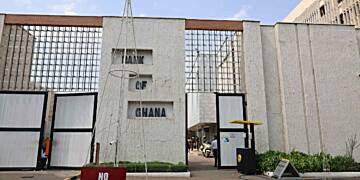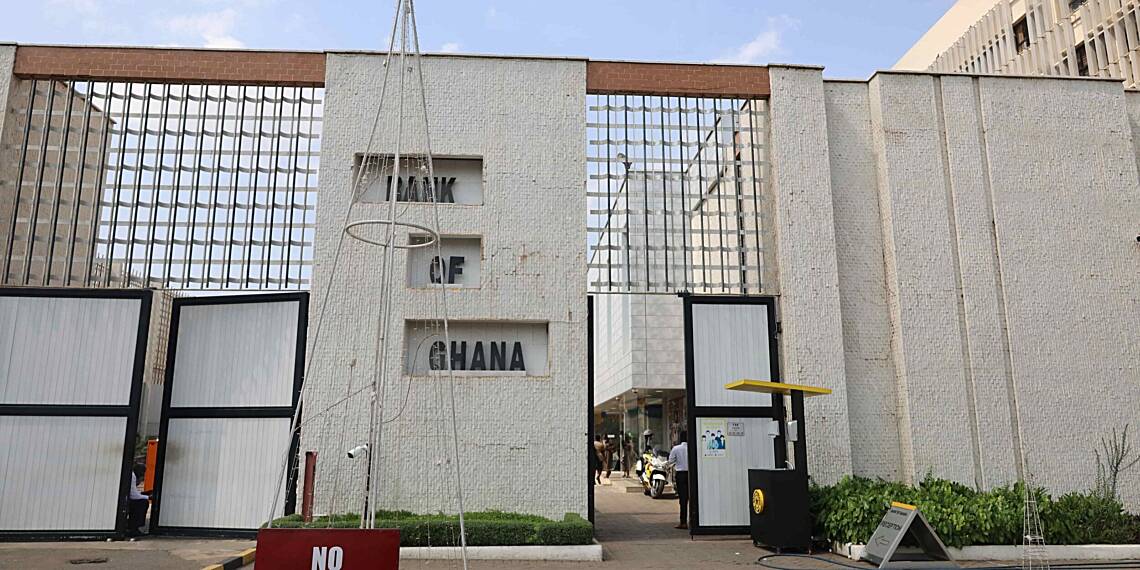The Bank of Ghana (BoG) has issued a response to an article written by Happy 98.9FM’s Bismark Brown titled ‘Is Ghana Becoming a Dual Currency State? The Rise of Yellow Currency!’. BoG says the statement is to address and correct several inconsistencies and several queries that were made by the renowned journalists.
The article suggested that electronic money could be replacing the Ghanaian cedi, prompting a need for strategic measures to protect the cedi’s use and relevance.
In a statement issued on Thursday, May 30, the Communications Department of the Bank of Ghana (BoG) clarified that when licensing mobile money in 2007, Ghana opted for a bank-based model, unlike other jurisdictions that implemented a telco-based model.
According to the BoG, the article’s author confused the telco-based model with the bank-based model. In Ghana, all such services are supported by banks and fintech companies licensed by the BoG, with actual transactions conducted in cedis.
The BoG stated that these back-office services, coordinated by the Ghana Interbank Payments and Settlement Systems (GhIPSS)—a wholly owned subsidiary of the BoG—are not visible to the general public. This is what sets Ghana apart from other jurisdictions that use a telco-based model.
“In fact, Ghana is among the few countries that have full interoperability between mobile money wallets and bank accounts and are fully backed by cash floats at corresponding commercial banks, without which settlement won’t happen. Other jurisdictions are now trying to establish such interoperability.”
“That said, the BoG is fully engaged and will continue to monitor this ecosystem to ensure we constantly promote financial stability while balancing that with flexibility for financial inclusion,” the BoG further stated.
READ THE FULL STATEMENT BELOW
RE: IS GHANA BECOMING A DUAL CURRENCY STATE? THE RISE OF YELLOW CURRENCY!
The Communications Department of the Bank of Ghana has noted the contents of an article titled “Is Ghana Becoming a Dual Currency State? The Rise of Yellow Currency!” and finds it important to correct some inconsistencies and misinformation in the article.
In interacting with journalists on the issue, the Bank of Ghana (BoG) explained that it is aware of the situation in other jurisdictions. Fortunately, the BoG explained that in 2007, when licensing mobile money, decided on the bank-based model, while other jurisdictions rolled out the telco-based model.
What the author wrote is confusing the telco-based model with the bank-based model in Ghana. In Ghana, all such services have banks and fintechs (licensed by BoG) behind them and actual transactions are in cedis. Such back office services are not visible to the general public, and are coordinated by the Ghana Interbank Payments and Settlement Systems (GhIPSS)—a wholly-owned subsidiary of BoG. And, this is what distinguishes Ghana from other telco-based jurisdictions.
In fact, Ghana is among the few countries that have full interoperability between mobile money wallets and bank accounts, and are fully backed by cash floats at corresponding commercial banks, without which settlement won’t happen. Other jurisdictions are now trying to establish such interoperability.
That said, the BoG is fully engaged and will continue to monitor this ecosystem to ensure we constantly promote financial stability while balancing that with flexibility for financial inclusion.
Communications Department, Bank of Ghana
30th May 2024
PUBLIC



















